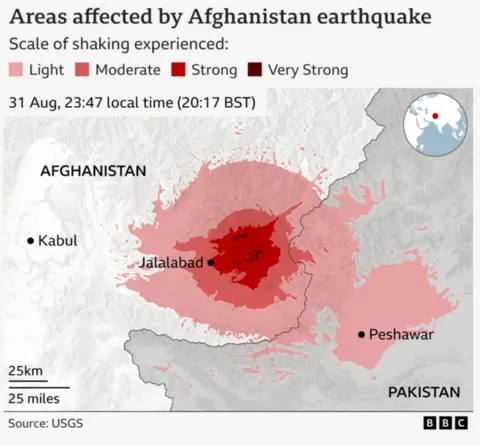Eighty years after the liberation of Bergen-Belsen, an estimated thousand survivors along with their families and supporters have gathered to commemorate the lives lost and the horrors endured at the infamous concentration camp situated in northern Germany. Bergen-Belsen became synonymous with the atrocities of the Nazi regime, where reports, photographs, and testimonies revealed a brutal reality that shocked the world upon its liberation in April 1945 by British and Canadian troops.
Upon entering the camp, soldiers were met with thousands of unburied corpses and severely emaciated survivors suffering from diseases like typhus and dysentery. Michael Bentine, a British soldier who later became a well-known comedian, described Bergen-Belsen as "the ultimate blasphemy," a sentiment echoed by many who witnessed the horrific conditions firsthand. British broadcaster Richard Dimbleby's poignant coverage further underscored the enormity of the tragedy, marking it as one of the darkest moments in his life.
Bergen-Belsen became a focal point of evidence against the Nazi regime; unlike other camps that were destroyed, the horrifying remnants of Belsen remained intact for the world to witness. The camp's proximity to the end of the war, alongside its overcrowded conditions, led to widespread suffering and numerous deaths, especially in the final weeks. While the camp lacked gas chambers, the incompetent mismanagement of prisoners accounted for daily fatalities numbering up to 500. The overall death toll reached between 50,000 and 70,000, with many victims being Jews, but also including Soviet POWs, Sinti, and homosexuals.
The commemoration event not only reflects on the sorrow of those who suffered but also shines a light on resilience, drawing together British Jews and dignitaries such as Deputy Prime Minister Angela Rayner, who will partake in a ceremony that honors the memory of the fallen. As survivors lay wreaths and leaders read psalms in the tranquil landscape where once stood the grim structures of the camp, the inscriptions on memorial stones poignantly remind visitors of the somber history of Bergen-Belsen, encapsulating the lingering memories of the deceased.
Despite the devastation, little remains of the camp that once was. British soldiers, focused on controlling disease outbreaks, made the grim decision to burn the huts, leaving behind a visitor center and a few memorial stones as the sole reminders of the suffering endured by countless victims. As this anniversary unfolds, it serves as a solemn reminder of the horrors that must never be forgotten.





















